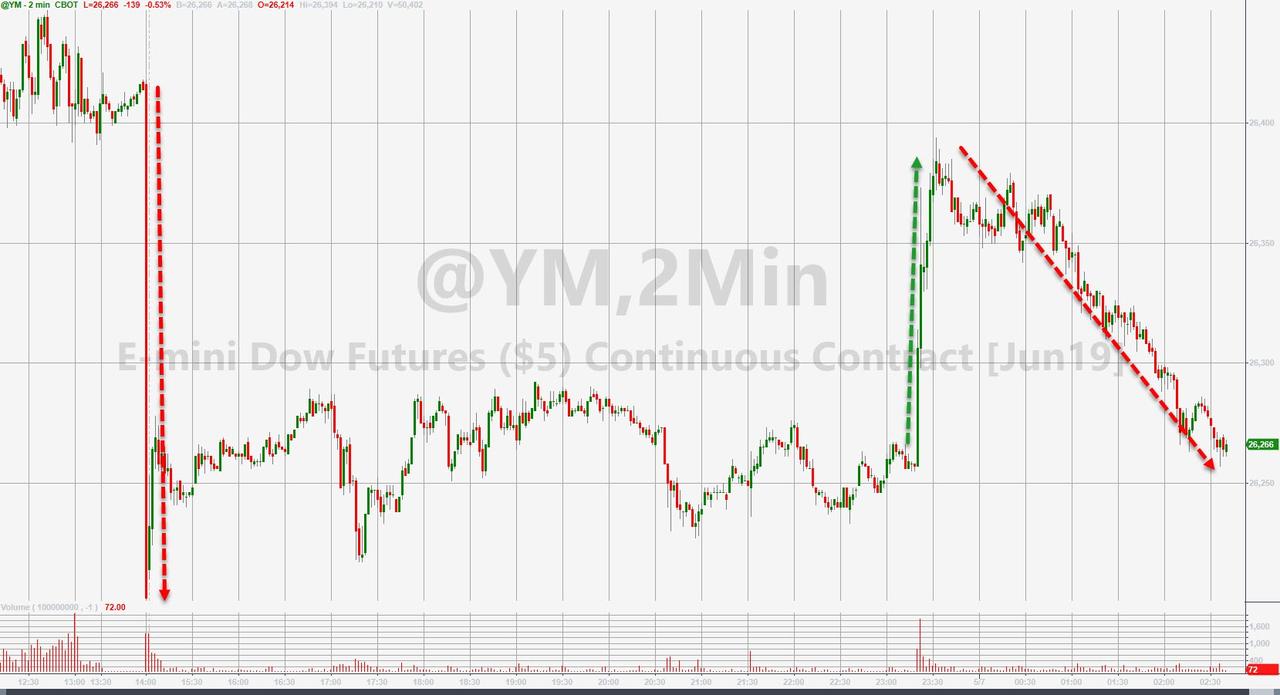Continuing the pattern of China countering belligerent American trade rhetoric with attempts to calm its domestic market, turmoil across global markets continued Tuesday even after Beijing confirmed that Vice Premier Liu He would travel to Washington for two days this week to lead trade talks, in what appeared to be an attempt to calm markets.
Just as investors were starting to think that they had dodged a bullet Monday evening after markets had pared most of their declines from overnight, Robert Lighthizer and Steven Mnuchin sent global stocks and the yuan into a tailspin after they affirmed that Washington would impose additional tariffs on Beijing Friday, claiming that China had reneged on its commitments, and – furthermore – that the market’s reaction wouldn’t be a factor in the talks.
At the time, we noted what appeared to be a new American strategy to maximize the damage from the US’s jawboning, while mitigating the blowback.
White House new trading strategy: deny trade deal is dead during US hours sending US stocks higher, confirm no deal ahead of China open crashing Shanghai Composite
— zerohedge (@zerohedge) May 6, 2019
And like clockwork, as Chinese equities and the yuan tumbled on Tuesday after recording their largest daily declines in three years the day before, China’s Commerce Ministry announced that Vice Premier Liu He would travel to Washington for two days for the next round of talks, despite the Trump Administration’s threats. On Monday, the Commerce Ministry said Beijing would still send a delegation, but it was unclear whether Liu would join.
But even after the Liu news broke, US stock futures, which had briefly trimmed their losses overnight, dumped once again.
Marking a stark departure from Beijing’s more aggressive trade rhetoric, in an editorial in the Global Times, an English-language Communist Party mouthpiece, Beijing adopted a surprisingly cautious tone, advising investors to ‘remain calm’ in the face of the trade-war turbulence, and insisting that the Chinese people should support Beijing’s strategy – whatever that happens to be – and that Washington was simply anxious for an early deal, so even if talks did fail, the outcome would be ‘controllable’.
Offering another example of its conciliatory rhetoric, Beijing warned that ‘mutual respect, equality and mutual benefit’ should be the premise of the talks.
Mutual respect, equality, and mutual benefit are the premise and basis for reaching an agreement, China’s Foreign Ministry said on Tuesday at a regular press conference, adding that tariffs will not solve any problem. pic.twitter.com/ePk9oXLypK
— People’s Daily, China (@PDChina) May 7, 2019
Another editorial, published in the People’s Daily, urged both sides to set aside their differences find a resolution in a ‘timely manner’, and warned that in order for an agreement to be reached, both sides may need to make some compromises.
via ZeroHedge News http://bit.ly/2H3jY8D Tyler Durden
